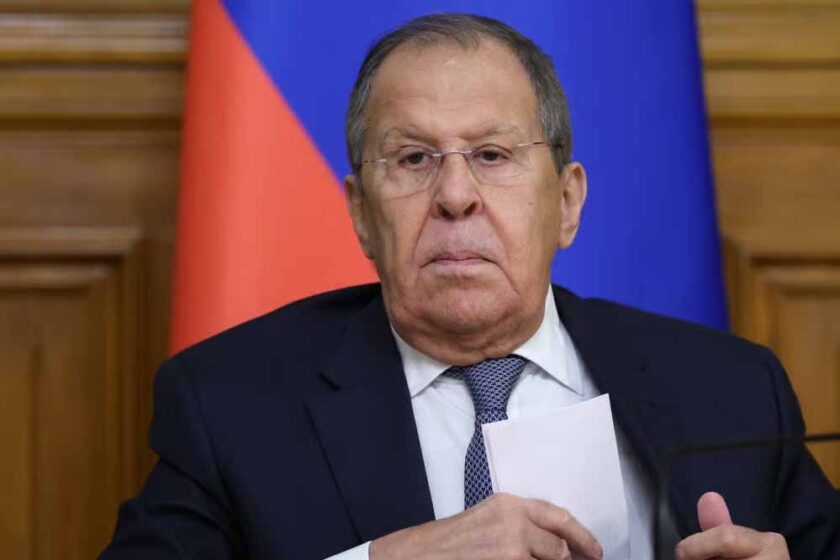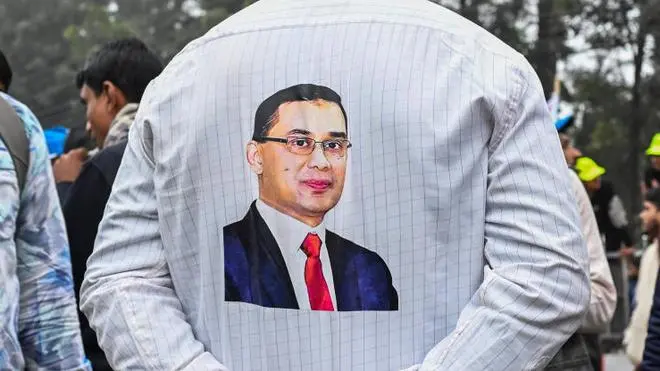Washington, D.C.: A late-night social media post by former U.S. President Donald Trump has reignited global concern over nuclear testing and sent shockwaves through Washington. Just hours before a key Senate hearing on nuclear command, Trump announced that he had directed the U.S. military to “start testing our Nuclear Weapons,” arguing that America “cannot fall behind Russia and China.”
The statement, made at 9:04 p.m. on Wednesday, threw Thursday’s Senate Armed Services Committee hearing into turmoil. U.S. Navy Vice Admiral Richard Correll, nominated to lead the U.S. Strategic Command (STRATCOM), faced intense questioning from lawmakers seeking clarity on the president’s intentions.
“If confirmed, my role would be to provide military advice regarding any discussions on nuclear testing,” Correll said, carefully navigating questions about whether Trump was referring to explosive testing or missile delivery systems.
Senator Jack Reed, the committee’s top Democrat, pressed Correll on whether restarting nuclear testing could destabilize global security. “Wouldn’t this risk triggering a new nuclear arms race?” he asked.
Correll, maintaining a neutral tone, responded that his role would be advisory and technical, not policy-setting.
Testing or Threat? Washington Seeks Answers
Administration officials have yet to clarify whether Trump’s remarks meant resuming explosive nuclear tests—banned in the U.S. since 1992—or testing delivery mechanisms like missiles. Experts warned that any return to detonation testing would upend decades of restraint and could provoke similar actions by Russia and China.
Vice President JD Vance defended the idea, saying it was about ensuring the reliability of America’s nuclear arsenal. But nuclear experts dismissed the justification, arguing that advanced simulations already maintain U.S. deterrence without explosions.
“There is no technical need to resume nuclear testing,” said Tara Drozdenko, director of the Global Security Program at the Union of Concerned Scientists. “It would make Americans less safe and erode international stability.”
Global Repercussions
Trump’s announcement comes ahead of his planned meeting with Chinese President Xi Jinping in South Korea, prompting speculation that the move is a diplomatic pressure tactic aimed at Beijing and Moscow.

Only North Korea has conducted an explosive nuclear test in the 21st century, the last in 2017. While Russia recently tested nuclear-powered systems, it has avoided full-scale explosions. A Kremlin spokesperson warned that Moscow would respond in kind if any nation resumed testing.
China, meanwhile, criticized Trump’s remarks and urged Washington to honor its commitment under the Comprehensive Nuclear-Test-Ban Treaty (CTBT). Beijing has shown little interest in trilateral arms negotiations, citing the vast size of U.S. and Russian arsenals.
“If this is an attempt to push China into talks, it’s unlikely to succeed,” said James Acton, co-director of the Nuclear Policy Program at the Carnegie Endowment for International Peace.
Domestic Resistance and Fallout
The proposal also reignited domestic opposition, particularly from lawmakers representing Nevada, where the United States conducted over 1,000 nuclear tests between 1945 and 1992. Senator Jacky Rosen vowed to block any attempt to resume testing, declaring, “Not on my watch.”
The Ploughshares Fund, a foundation advocating nuclear non-proliferation, warned that abandoning the moratorium could actually help U.S. rivals by giving them a pretext to advance their own weapons programs.
“Resuming tests doesn’t strengthen deterrence—it levels the field for adversaries,” the group said in a statement.
A Department of Energy official, speaking anonymously, confirmed that if the order were to be implemented, any test would occur underground at the Nevada National Security Site, which is maintained to be test-ready within 36 months.
With Washington scrambling for answers and allies expressing concern, Trump’s late-night post has opened a new front in the global debate over nuclear restraint—one that could redefine the balance of power and reignite Cold War-era fears.










